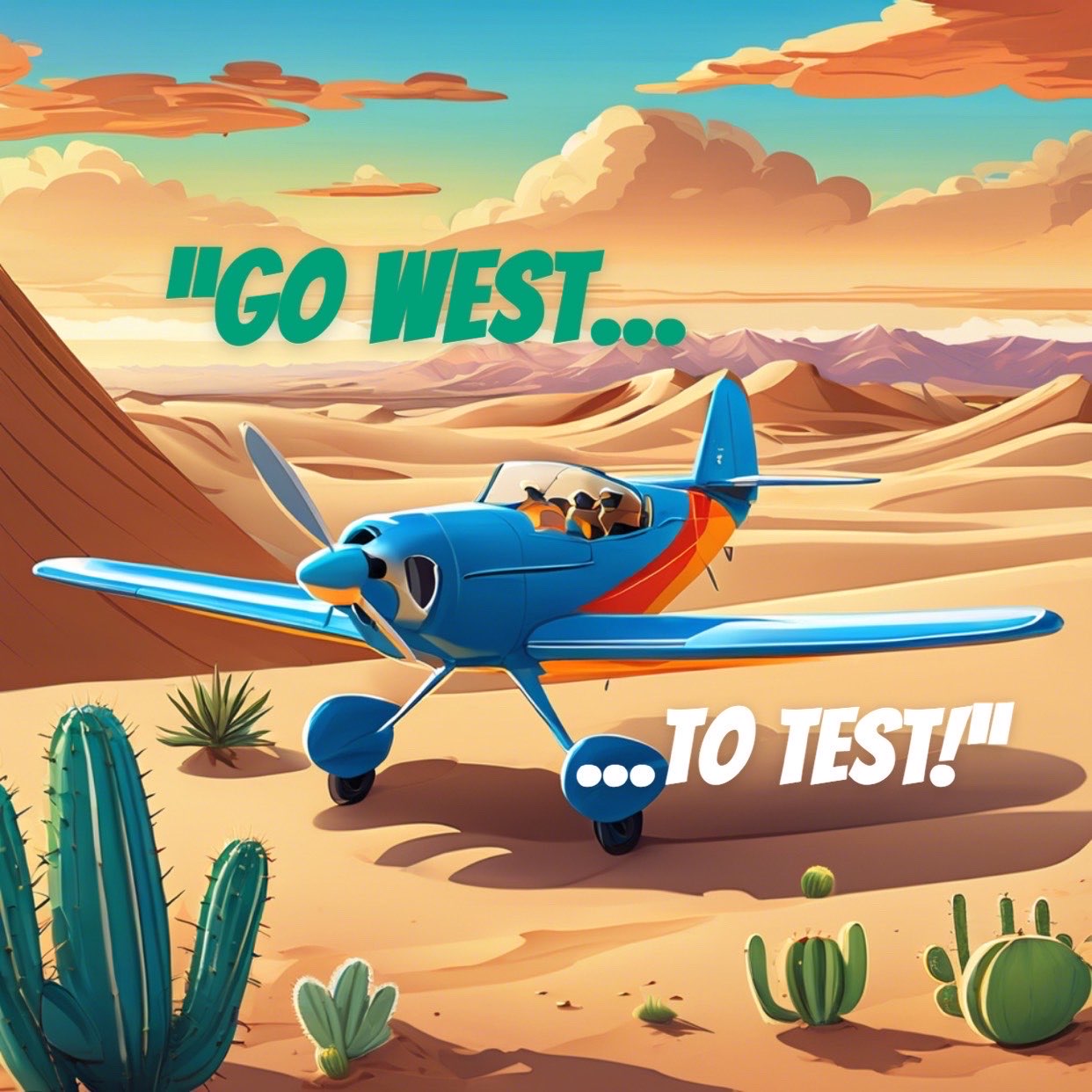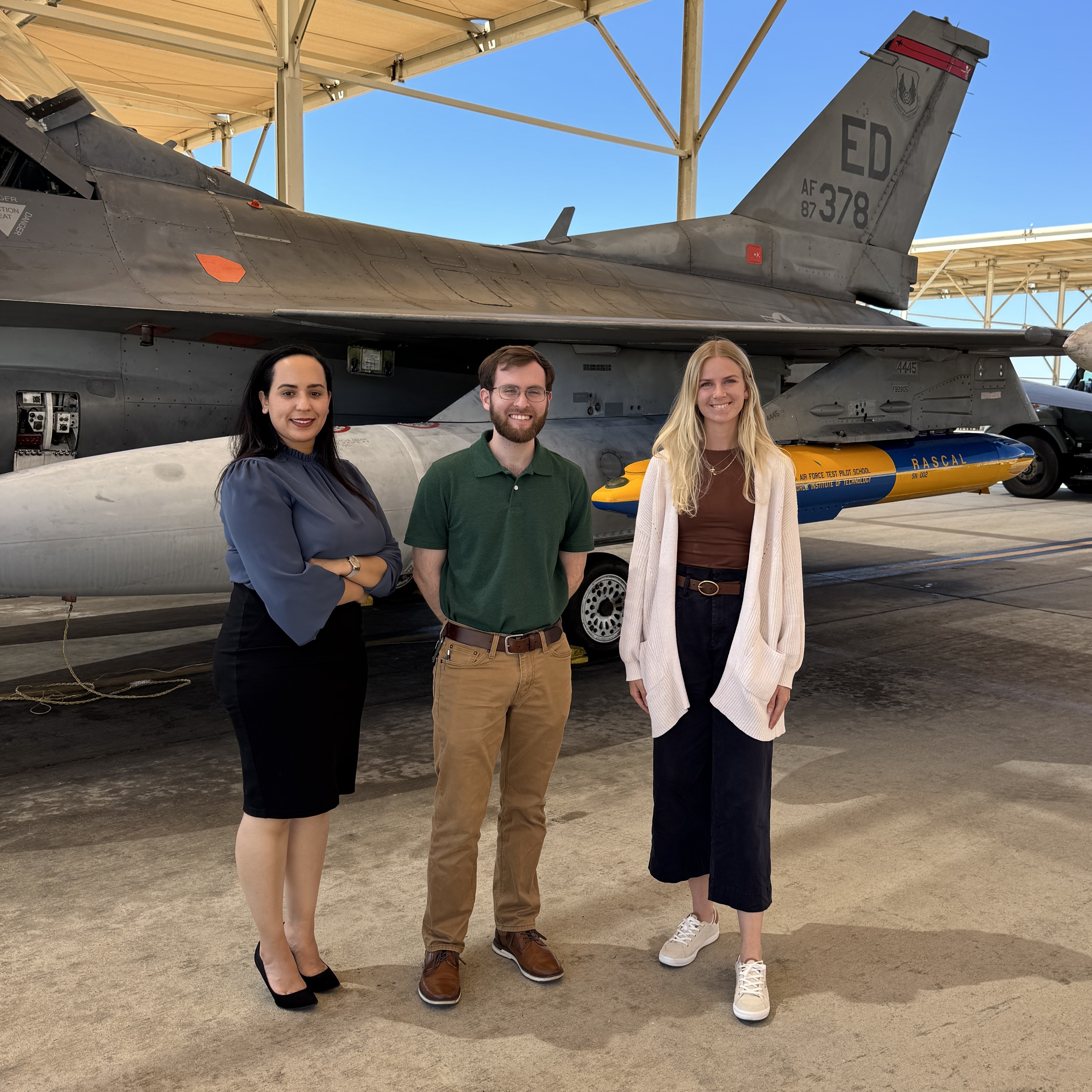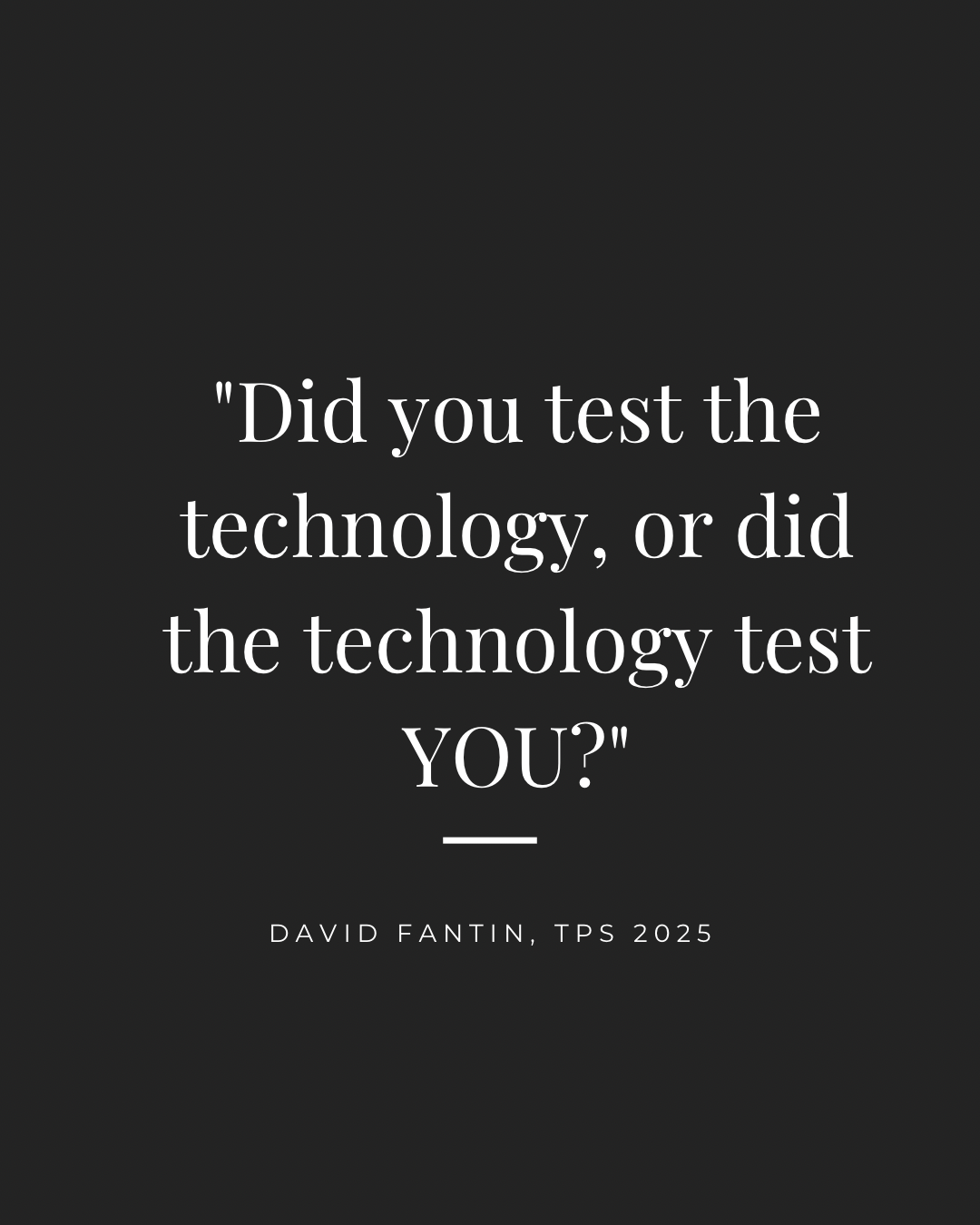EDWARDS AIR FORCE BASE, Calif. -- The USAF Test Pilot School’s Research Division recently hosted three summer internships in partnership with the Air Force Research Laboratory. The students spent the summer at Edwards Air Force Base, California working on real-world projects that yielded positive benefits for aerospace research.
 The Air Force Test Pilot School (TPS) employed an extension of the AFRL Sensors Directorate Internship Program (SDIP), a summer internship opportunity managed by the Air Force Research Lab Sensors (AFRL) Directorate (RY), Wright-Patterson AFB. This detachment, dubbed “SDIP: Go West to Test” saw two students work on flight test research and development initiatives, standing shoulder-to-shoulder with TPS instructors. A third student hosted by TPS from AFRL’s Autonomy Capability Team ACT3 team supported space test research and collaborations to enhance TPS’ Space Test Course (STC).
The Air Force Test Pilot School (TPS) employed an extension of the AFRL Sensors Directorate Internship Program (SDIP), a summer internship opportunity managed by the Air Force Research Lab Sensors (AFRL) Directorate (RY), Wright-Patterson AFB. This detachment, dubbed “SDIP: Go West to Test” saw two students work on flight test research and development initiatives, standing shoulder-to-shoulder with TPS instructors. A third student hosted by TPS from AFRL’s Autonomy Capability Team ACT3 team supported space test research and collaborations to enhance TPS’ Space Test Course (STC).
Dr. Rachel Kinard serves as the TPS Director of Research. As a former AFRL scientist, she reached out to AFRL to explore the possibility of hosting research interns to tackle the school’s hard problems. “The program demonstrates the immense value of support that AFRL can provide to the Test & Evaluation Community through timely & targeted subject matter expertise matched to carefully scoped flight test challenges” says Dr. Kinard.
David Fantin is a student at the University of Texas in Dallas completing his Master of Science degree in applied mathematics. Initially applying under the assumption of working in Dayton, Ohio at the AFRL’s Sensors Directorate, he instead found himself in the Mojave Desert after receiving a pitch from Dr. Rachel Kinard, who leads the research division for the school.
“Before this summer, I had no experience in a military setting and honestly didn’t know flight test engineers were a career possibility,” Fantin said. “A lot of this experience surprised me, but the biggest was the people. Every person I met at TPS was incredibly inspiring but most importantly extremely kind. The culture at the school has made this a deeply meaningful experience.”
 His summer project focused entirely on the X-62A VISTA artificial intelligence testbed, where he worked to provide extensive modeling and documentation for upcoming test campaigns.
His summer project focused entirely on the X-62A VISTA artificial intelligence testbed, where he worked to provide extensive modeling and documentation for upcoming test campaigns.
Student Zineb Louriqate, a doctoral candidate at Cornell University, also found herself hands-on with the X-62A VISTA, helping streamline bridging controls and software development within the aircraft’s systems. This included significant process enhancements to support collaborations across a diverse pool of researchers.
“This internship was a unique opportunity to bridge my flight test industry experience with my academic research interests” Louriqate said. “I was surprised by how many disciplines and backgrounds were represented within TPS, and this continued to propel my aspirations as a future academic.”
In addition to autonomous aircraft, intern Cassie McQuinn worked with TPS on investigating safety assurance for autonomous controls within applied space systems. A doctoral candidate in aerospace engineering with Texas A&M University, she has been interning with AFRL since 2023 and saw the summer at TPS as a compelling extension to her understanding of algorithms operator’s perspective.
“It is exciting to develop algorithms in a simulated environment; but there is nothing more rewarding than seeing theoretical solutions being successfully applied to a physical system,” McQuinn said. “As researchers we often tend to focus on only developing algorithms with incredible capabilities, but here my mind has shifted to focus on how these algorithms will interact with the operator in a real-world setting. Edwards provides a unique environment to work with operators of all backgrounds who are executing the real-world mission right now”.
Dr. Beth Morrison, Air Force Research Lab scientist and the Principal Investigator of the SDIP program, sees SDIP as a valuable R&D support structure to the Air Force Enterprise and its operational mission.
 “The SDIP program has three main components: intern training, mentor development, and cutting-edge research. Working with TPS has allowed our interns to work in operationally relevant environments and increase future technology transition to the warfighter” says Morrison.
“The SDIP program has three main components: intern training, mentor development, and cutting-edge research. Working with TPS has allowed our interns to work in operationally relevant environments and increase future technology transition to the warfighter” says Morrison.
Kinard notes this inaugural cohort of AFRL interns provided critical mutual support to the school’s high workloads while providing an opportunity for interns to shadow and witness cutting-edge flight testing over Edwards airspace. While the internships ended in August, the contributions provided by these students through the AFRL SDIP program will continue to yield aerospace research for several years to come.